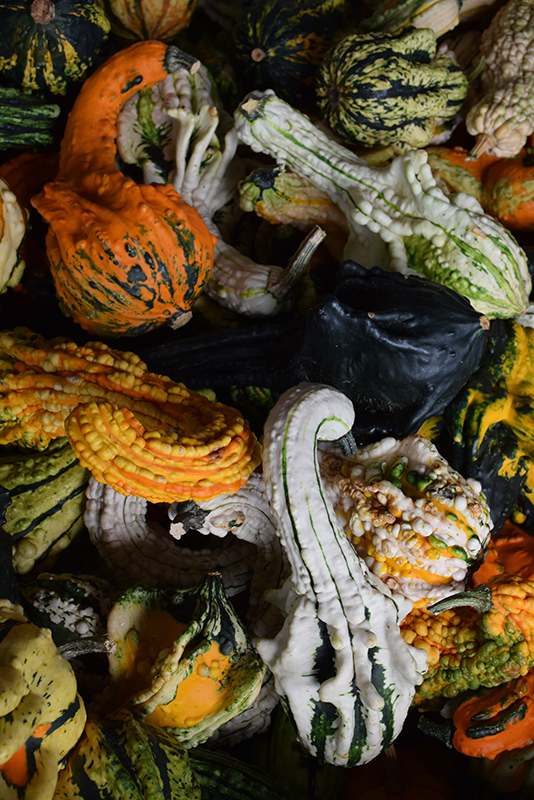Autumn Wings Gourd
Cucurbita pepo 'Autumn Wings'
Height: 24 inches
Spacing: 3 feet
Sunlight:
![]()
Hardiness Zone: (annual)
Group/Class: Gourd-Ornamental
Description:
Crooked or straight, this vigorous vining variety produces unique looking gourds, perfect for any autumn decoration or craft project; medium sized, pear shaped gourds, upwards of 7" long in various colors and patterns; not recommended for culinary use
Ornamental Features
Autumn Wings Gourd is primarily grown for its highly ornamental fruit. It features an abundance of magnificent harvest gold berries with green variegation from early fall to early winter, which fade to orange over time. Its large lobed leaves remain dark green in color with distinctive creamy white veins throughout the season.
Landscape Attributes
Autumn Wings Gourd is a spreading annual with an upright spreading habit of growth. Its medium texture blends into the garden, but can always be balanced by a couple of finer or coarser plants for an effective composition.
This is a relatively low maintenance plant, and should not require much pruning, except when necessary, such as to remove dieback. It is a good choice for attracting birds, bees and butterflies to your yard. It has no significant negative characteristics.
Autumn Wings Gourd is recommended for the following landscape applications;
- General Garden Use
Planting & Growing
Autumn Wings Gourd will grow to be about 24 inches tall at maturity, with a spread of 10 feet. When grown in masses or used as a bedding plant, individual plants should be spaced approximately 3 feet apart. Its foliage tends to remain dense right to the ground, not requiring facer plants in front. The stalks can be weak and so it may require staking in exposed sites or excessively rich soils. This annual will normally live for one full growing season, needing replacement the following year.
This plant should only be grown in full sunlight. It does best in average to evenly moist conditions, but will not tolerate standing water. It may require supplemental watering during periods of drought or extended heat. It is not particular as to soil type or pH. It is somewhat tolerant of urban pollution. Consider applying a thick mulch around the root zone over the growing season to conserve soil moisture. This is a selected variety of a species not originally from North America, and it is considered by many to be an heirloom variety.; however, as a cultivated variety, be aware that it may be subject to certain restrictions or prohibitions on propagation.

